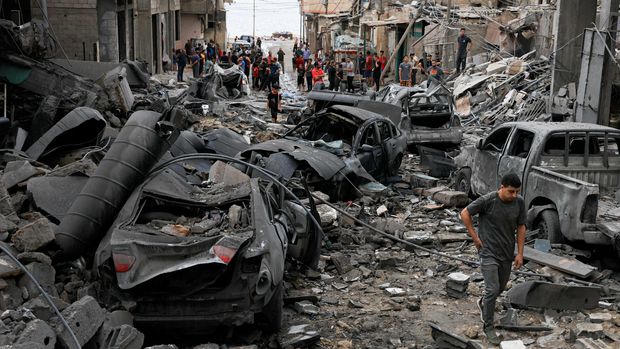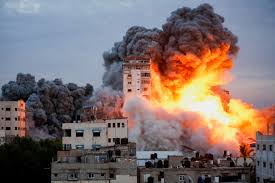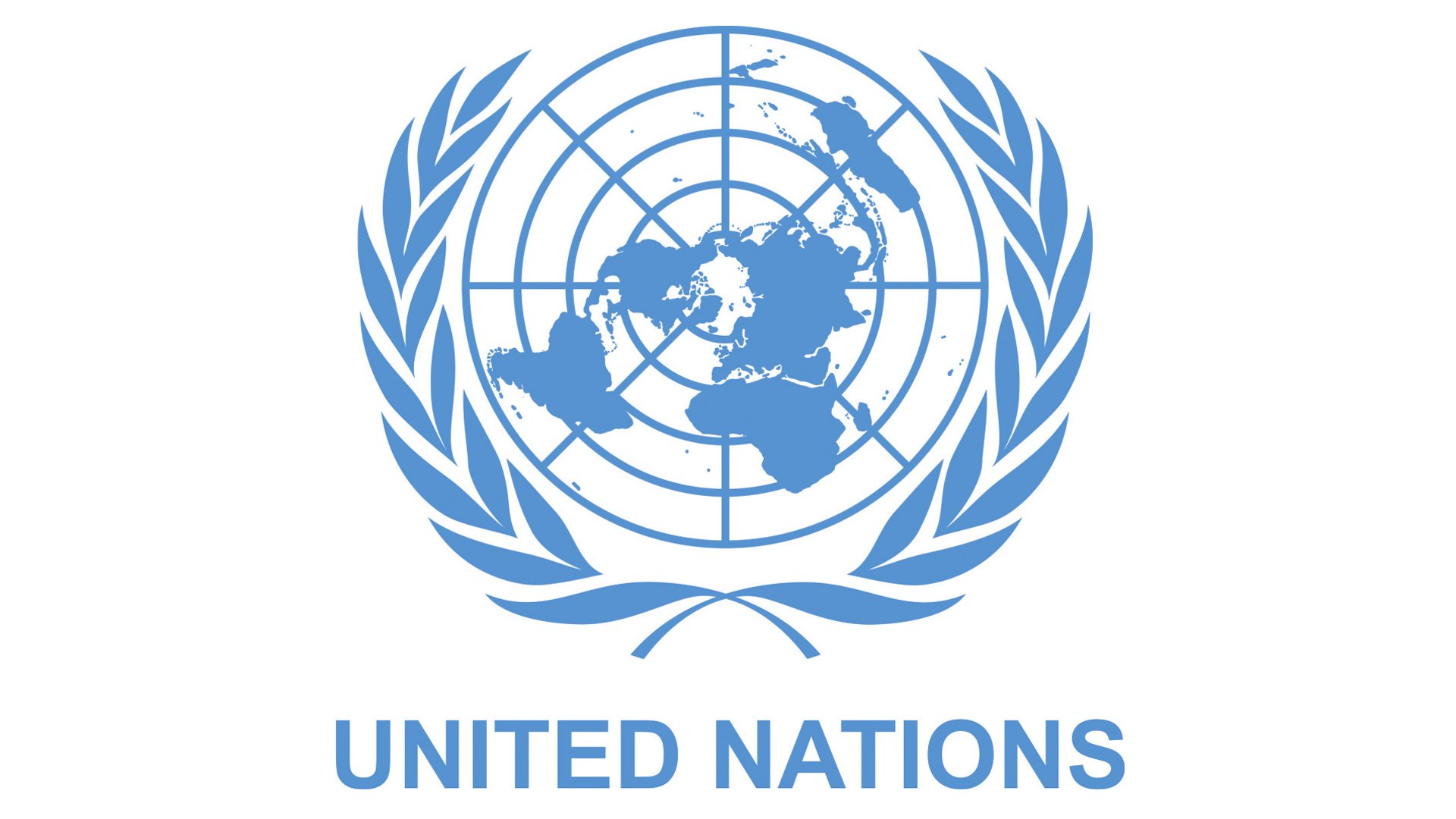Throughout history and frequently in the contemporary era, conflicts have frequently arisen due to disputes over territory. Therefore, it is unsurprising that the current conflict between Israel and Gaza can also be primarily attributed to a territorial struggle.
On one side, the Israelis assert ownership of the land they currently inhabit, presenting it as their ancestral territory. Conversely, the Palestinians also stake their claim to the same land, contending that it has been inherited from their forebears.
Both Israelis and Palestinians have legitimate claims to the land based on their ancestral inheritance, though these claims originated in different eras separated by thousands of years. The ongoing destructive conflict between the two parties is primarily fueled by their differing perspectives on land entitlement.
This crisis, rooted in historical events dating back approximately four millennia, culminated in the last major conflict between these two sides in 2014. However, the most recent escalation was precipitated by Hamas, which initiated a surprise invasion of Israel on Saturday, October 7th. This invasion resulted in the tragic loss of over a thousand Israeli lives, including children, elderly individuals, and men, while approximately 150 others were taken hostage in Gaza.
In a retaliatory move, Israel initiated a military operation in Gaza, which serves as the headquarters for Hamas. As of the most recent update on the eighth day of the conflict, it is estimated that approximately 2,600 Gaza residents, including children, women, and the elderly, have tragically lost their lives due to actions carried out by the Israeli Defense Force (IDF).
Before delving further into this matter and to provide context for a more comprehensive understanding, let me draw a parallel between the current crisis in Israel and Gaza and similar conflicts involving land and territorial disputes around the world, as this incident carries significant global implications.
Consider, for instance, the Russian invasion of Ukraine in February 2021, now nearly two years ago, unless the conflict concludes before February of the coming year. Much like the ongoing Israeli/Gaza conflict spearheaded by the Israeli Defense Force (IDF) against HAMAS, which fundamentally revolves around claims to the strip of land situated between Egypt and Israel, commonly known as the Gaza Strip, the Russian invasion of Ukraine primarily concerns territorial dominance.
Prior to the Russian incursion into Ukraine, a region that was once a part of the Union of Soviet Socialist Republics (USSR) before the era of perestroika, under the leadership of President Mikhail Gorbachev, during which the Soviet Union experienced dissolution, Europe had not witnessed a major conflict since the Falklands War between the United Kingdom (UK) and Argentina on April 2, 1982.
The conflict began when Argentina initiated an occupation of the Falkland Islands and South Georgia, located in the South Atlantic Ocean. These territories are claimed by the United Kingdom as part of its overseas holdings. Despite having their own local governance, these regions had been under British colonial rule since 1841 and were predominantly inhabited by British descendants.
Conversely, Argentina asserts its sovereignty over these lands, characterizing its actions as an effort to reclaim its territory. This raises a parallel to the ongoing Israel/Gaza conflict, where a dispute over ancestral land with the current occupiers shares similarities with the root cause of the conflict.
After a 74-day conflict between the United Kingdom and Argentina, in which 649 Argentine soldiers tragically lost their lives and 255 British military personnel perished, Argentina surrendered the Falkland Islands to the UK precisely two months, one week, and five days after its forcible takeover.
In addition to the loss of lives on both sides, there were significant socioeconomic repercussions. On the Argentine side, the military government’s standing among citizens plummeted, and the defeat at the hands of the UK accelerated the collapse of the military regime. This defeat paved the way for the installation of a democratically elected government.
Conversely, the victory bolstered the position of the ruling party in the UK at the time, leading to its successful reelection.
The Falklands War took place in 1982, approximately four decades ago. Today, there is a pertinent parallel to be drawn between this historical conflict and the ongoing situation in the Middle East, where the Israeli Defense Force (IDF) is engaged in hostilities with Hamas, the governing authority of the Gaza Strip.
In parallel to this, a contemporary conflict is unfolding between Russia and Ukraine, with the latter having been a part of the former Soviet Socialist Republic (USSR) prior to its dissolution.
Much like the present conflict initiated by Israel against the Gaza Strip, led by Hamas, following an unexpected incursion into the Israeli-controlled portion of Gaza on October 7, resulting in a substantial loss of life, the Russia-Ukraine conflict revolves around territorial disputes and claims to ancestral lands.
Coincidentally, it was Russia that initiated the offensive against Ukraine, much like Hamas was the initial aggressor against Israel.
The ongoing conflict involving Russia’s assault on Ukraine, now spanning 18 months since its inception in February 2021, has generated significant global repercussions.
These consequences include elevated inflation resulting from food scarcity, particularly grains, a substantial portion of which originates from Ukraine. Additionally, energy shortages, such as natural gas, predominantly supplied by Russia to European nations, with a particular emphasis on Germany, have also become pronounced as a result of the conflict.
The global ramifications of the conflict between Russia and Ukraine have led to several significant issues, including the scarcity of bread and its sources and the prohibitive cost of this essential staple, primarily derived from wheat, for African nations and other regions in the Third World. The challenge arises from the constraints on wheat production and exportation out of Ukraine.
Furthermore, a shortage of diesel fuel has become prevalent in many African countries, notably Nigeria. This shortage stems from the ongoing war waged by Russia, a major supplier of diesel to the African continent. The consequences of this scarcity extend to a sharp increase in the prices of this critical resource used to power industrial facilities, compounding concerns for manufacturing enterprises worldwide.
Indeed, it is widely acknowledged that following the global COVID-19 pandemic, which profoundly impacted the world for approximately two years, the conflict between Russia and Ukraine has emerged as a significant factor contributing to the current high inflation rates that are impeding economic growth and development in nations worldwide, regardless of their development status.
In light of this situation, there is a heightened sense of concern regarding the potential escalation of the conflict initiated about a week ago by Israel against Hamas in Gaza. This military action was undertaken in response to an attack by Hamas, which resulted in the loss of Israeli lives within a Gaza kibbutz and extended beyond the borders of both nations.
In addition to the significant loss of life, with the death toll surpassing 5,000 casualties on both sides in a mere eight-day period of the conflict, there is a looming risk of involvement from nations like Iran, which is steadily advancing its nuclear capabilities and actively supporting groups like Hamas. Furthermore, there is a potential for other regional players, including Lebanon, Syria, Egypt, and others, to be drawn into the conflict, especially if it is framed as a religious war. This presents a clear and immediate threat.
To mitigate the potential escalation and prevent further strain on the global economy, already burdened by the adverse impacts of climate change, the United States of America (USA) is currently undertaking shuttle diplomacy efforts to engage key stakeholders in the region and promote de-escalation.
In pursuit of this objective, the United States Secretary of State, Mr. Anthony Blinken, undertook diplomatic missions to Israel, followed by visits to Saudi Arabia and Egypt, before returning to Israel. His primary aim was to engage in negotiations aimed at deescalating the ongoing crisis, a situation in which Israel teetered on the brink of launching a ground invasion of the Gaza Strip, governed by Hamas. Such an escalation could potentially result in severe, if not catastrophic, humanitarian consequences.
The current crisis in Israel and Gaza, which has elicited widespread international concern, is not a novel occurrence in this region. Geographically, Israel is situated along the eastern Mediterranean coast, sharing borders with Lebanon, Syria, Jordan, and Egypt. Historical records indicate the existence of Israel dating back to as early as 1000 BC, as documented in biblical accounts.
Over the years, Israel faced various adversities, most notably the Holocaust during Nazi Germany’s regime. This tumultuous period led to Israel’s displacement across multiple locations in the Middle East and Europe over several centuries. Eventually, Israel returned to its original ancestral homeland, as documented in biblical records.
Israel reclaimed its present location in 1948, following the conclusion of World War II. This relocation was facilitated under the auspices of the United Nations through UN Resolution 181.
Conversely, Palestine, which disputes Israel’s claim to the region, also regards it as its ancestral home. Historically, both Israel and Palestine have had valid claims to the land, but these claims emerged at different points in history.
The State of Israel was officially established on May 15, 1948, and gained admission to the United Nations. However, a Palestinian state was not concurrently established. Instead, the remaining territories of pre-1948 Palestine, namely the West Bank, which includes East Jerusalem, and the Gaza Strip, were administered by Jordan and Egypt, respectively, from 1948 to 1967.
According to Britannica.com, the term “Palestine” has its origins in “Philistia,” a name coined by Greek historians to describe the region occupied by the Philistines during the 12th century BCE. This area was a small coastal enclave situated between what is now modern Tel Aviv-Yafo and Gaza.
Israel originally inhabited the land as far back as 1000 BC. However, the region witnessed successive conquests by various forces, including Christian inquisitors, ultimately leading to the displacement of the community known as the Tribe of Israel and their relocation to Europe.
While residing in Europe, the Israelites, commonly referred to as Jews, endured persecution at the hands of Nazi Germany under the leadership of Adolf Hitler. This dark period witnessed the execution of approximately six million Jews through the utilization of gas chambers, as Hitler aimed to eradicate them, having unjustly labeled them as an inferior caste.
This tragic event marked the world’s initial major genocide following the Armenian genocide, perpetrated by Turkey against Armenians in the Baku region of present-day Azerbaijan in 1915.
Turkey has steadfastly refrained from acknowledging the historical event as genocide, a stance that persists to this day. However, it is worth noting that the United States, under the leadership of its 46th president, Joe Biden, recently took the significant step of officially recognizing this event as genocide, much to the dismay of Turkey.
In order to provide a comprehensive perspective and simplify the understanding for the general public, it would be beneficial to illustrate the Israeli-Palestinian, Gaza, and Hamas situations through real and practical events.
Efforts to foster peace between Israel and its neighboring nations have included the Madrid Conference in Spain in 1991, the Oslo Accord in Norway in 1993, and the Camp David Summit in year 2000, which was curated by the 42nd President of the United States, Mr. Bill Clinton.
The enduring issue at the heart of the Israeli-Palestinian conflict stems from a deep-seated mutual animosity. Notably, Hamas and Iran have publicly expressed their intent to obliterate Israel, while in response, Israel has made similar threats towards both Hamas and Iran, the latter being perceived as a key supporter of the former.
Israel has taken these threats seriously, as evident in its actions such as the Gaza siege and continuous vigilance regarding Iran’s nuclear program.
Concurrently, the United States has undertaken the Abraham Accords as part of its recent diplomatic efforts in the Middle East. Spearheaded by Jared Kushner, son-in-law of former President Donald Trump, this initiative successfully brokered the restoration of business and diplomatic relations between Israel and the United Arab Emirates, exemplified by the resumption of commercial airline flights between the two nations.
However, all the peace initiatives between the nation of Israel and the Palestinian territory have proven futile due to the profound emotional attachments that both conflicting parties maintain toward the same ancestral land.
The Russian Prime Minister, Mr. Vladimir Putin, is currently engaged in a military campaign against Ukraine with the objective of reclaiming the Russian-speaking and ethnically Russian parts of the region. This endeavor stems from the dissolution of the Union of Soviet Socialist Republics (USSR) during the presidency of Mikhail Gorbachev from 1985 to 1991. The disintegration of the USSR was a carefully orchestrated process, taking place under the leadership of the 40th President of the United States, Mr. Ronald Reagan (1981–1989), and Mrs. Margaret Thatcher, who served as the Prime Minister of the United Kingdom from 1979 to 1990.
During the tenure of the 44th President of the United States, Mr. Barack Obama, in 2014, Russia reasserted control over Crimea, a region originally part of Ukraine yet predominantly inhabited by Russian-speaking people. Despite the United States’ efforts, which included threats, it proved unsuccessful in preventing Mr. Putin from annexing Crimea, even though it had previously warned of taking action if Russia crossed the established red line by invading and occupying Crimea.
Similarly, the Palestinian territory, led by Hamas, aspires to reclaim historical sovereignty over land currently occupied by Israel, mirroring Putin’s yearning for the revival of the old Russian Empire. This situation bears resemblance to China’s pursuit of sovereignty over Taiwan. These are complex issues, but they are pivotal existential realities of our time.
Picture the Romans embarking on an ambitious quest to reestablish the ancient Roman Empire, extending their dominion from Greece to Spain, encompassing Italy, Germany, Belgium, France, Egypt, the United Kingdom, Libya, and Switzerland, among others. Similarly, envision Great Britain endeavoring to regain its former British Empire, spanning from Africa and the Caribbean to India and extending to Australia, Canada, and the United States.
To illustrate this point more vividly, reflect upon the Alafin of the historical Oyo Empire and the Shehu of Borno from the Kanem-Bornu Empire, both attempting to resurrect their empires that have risen and fallen over several millennia ago.
Would such endeavors not likely result in the type of chaos currently unfolding in Ukraine and Gaza?
It is within this context that we should consider the dire situation in the Middle East, as exemplified by the ongoing crisis in Israel and the Gaza Strip.
To underscore the profound connection humans hold with their ancestral territories, one can reflect on historical conflicts like the lfe-Modakeke Wars in Yorubaland, the Aguleri-Umuleri Ethnic Struggles in Igbo Land, and the Jukuns-Tiv Conflicts in the Middle Belt of Nigeria.
These are just a few examples, not to mention the pasturalists encroachment on farmlands across Nigeria, spanning from the desert regions in the north, inhabited by the Hausa/fulani, to the savannahs of the Middle Belt, the mangroves in the forests of the South-West, and the wetlands of the South-East and South-South that resulted in bloody clashes nationwide.
It is trite to state that the clashes between herdsmen and farmers have led to significant loss of life and property, occurring with alarming frequency, almost resembling an epidemic.
One thing that is consistent in the narrative is that the lsrael -Hamas conflict like the others referenced in this piece is about struggle over ancestral land or territory by people of different cultures.
So, let no one cast it as a religious war.
In light of these narratives, it has become evident that territorial disputes rooted in ancestral ties are universally charged with intense emotions and often seem insurmountable. This is why the international community must approach this highly sensitive issue with the utmost caution to prevent the outbreak of a potential global conflict.








